- Home
- Wilkie Collins
Little Novels Page 2
Little Novels Read online
Page 2
"Please let me see your feet."
For the moment, Mr. Rayburn lost his presence of mind. He looked at the instruments on the side-table.
"Are you a corn-cutter?" was all he could say.
"Excuse me, sir," returned the polite operator, "the term you use is quite obsolete in our profession." He rose from his knees, and added modestly: "I am a Chiropodist."
"I beg your pardon."
"Don't mention it! You are not, I imagine, in want of my professional services. To what motive may I attribute the honor of your visit?"
By this time Mr. Rayburn had recovered himself.
"I have come here," he answered, "under circumstances which require apology as well as explanation."
Mr. Zant's highly polished manner betrayed signs of alarm; his suspicions pointed to a formidable conclusion—a conclusion that shook him to the innermost recesses of the pocket in which he kept his money.
"The numerous demands on me—" he began.
Mr. Rayburn smiled.
"Make your mind easy," he replied. "I don't want money. My object is to speak with you on the subject of a lady who is a relation of yours."
"My sister-in-law!" Mr. Zant exclaimed. "Pray take a seat."
Doubting if he had chosen a convenient time for his visit, Mr. Rayburn hesitated.
"Am I likely to be in the way of persons who wish to consult you?" he asked.
"Certainly not. My morning hours of attendance on my clients are from eleven to one." The clock on the mantelpiece struck the quarter-past one as he spoke. "I hope you don't bring me bad news?" he said, very earnestly. "When I called on Mrs. Zant this morning, I heard that she had gone out for a walk. Is it indiscreet to ask how you became acquainted with her?"
Mr. Rayburn at once mentioned what he had seen and heard in Kensington Gardens; not forgetting to add a few words, which described his interview afterward with Mrs. Zant.
The lady's brother-in-law listened with an interest and sympathy, which offered the strongest possible contrast to the unprovoked rudeness of the mistress of the lodging-house. He declared that he could only do justice to his sense of obligation by following Mr. Rayburn's example, and expressing himself as frankly as if he had been speaking to an old friend.
"The sad story of my sister-in-law's life," he said, "will, I think, explain certain things which must have naturally perplexed you. My brother was introduced to her at the house of an Australian gentleman, on a visit to England. She was then employed as governess to his daughters. So sincere was the regard felt for her by the family that the parents had, at the entreaty of their children, asked her to accompany them when they returned to the Colony. The governess thankfully accepted the proposal."
"Had she no relations in England?" Mr. Rayburn asked.
"She was literally alone in the world, sir. When I tell you that she had been brought up in the Foundling Hospital, you will understand what I mean. Oh, there is no romance in my sister-in-law's story! She never has known, or will know, who her parents were or why they deserted her. The happiest moment in her life was the moment when she and my brother first met. It was an instance, on both sides, of love at first sight. Though not a rich man, my brother had earned a sufficient income in mercantile pursuits. His character spoke for itself. In a word, he altered all the poor girl's prospects, as we then hoped and believed, for the better. Her employers deferred their return to Australia, so that she might be married from their house. After a happy life of a few weeks only—"
His voice failed him; he paused, and turned his face from the light.
"Pardon me," he said; "I am not able, even yet, to speak composedly of my brother's death. Let me only say that the poor young wife was a widow, before the happy days of the honeymoon were over. That dreadful calamity struck her down. Before my brother had been committed to the grave, her life was in danger from brain-fever."
Those words placed in a new light Mr. Rayburn's first fear that her intellect might be deranged. Looking at him attentively, Mr. Zant seemed to understand what was passing in the mind of his guest.
"No!" he said. "If the opinions of the medical men are to be trusted, the result of the illness is injury to her physical strength—not injury to her mind. I have observed in her, no doubt, a certain waywardness of temper since her illness; but that is a trifle. As an example of what I mean, I may tell you that I invited her, on her recovery, to pay me a visit. My house is not in London—the air doesn't agree with me—my place of residence is at St. Sallins-on-Sea. I am not myself a married man; but my excellent housekeeper would have received Mrs. Zant with the utmost kindness. She was resolved—obstinately resolved, poor thing—to remain in London. It is needless to say that, in her melancholy position, I am attentive to her slightest wishes. I took a lodging for her; and, at her special request, I chose a house which was near Kensington Gardens.
"Is there any association with the Gardens which led Mrs. Zant to make that request?"
"Some association, I believe, with the memory of her husband. By the way, I wish to be sure of finding her at home, when I call to-morrow. Did you say (in the course of your interesting statement) that she intended—as you supposed—to return to Kensington Gardens to-morrow? Or has my memory deceived me?"
"Your memory is perfectly accurate."
"Thank you. I confess I am not only distressed by what you have told me of Mrs. Zant—I am at a loss to know how to act for the best. My only idea, at present, is to try change of air and scene. What do you think yourself?"
"I think you are right."
Mr. Zant still hesitated.
"It would not be easy for me, just now," he said, "to leave my patients and take her abroad."
The obvious reply to this occurred to Mr. Rayburn. A man of larger worldly experience might have felt certain suspicions, and might have remained silent. Mr. Rayburn spoke.
"Why not renew your invitation and take her to your house at the seaside?" he said.
In the perplexed state of Mr. Zant's mind, this plain course of action had apparently failed to present itself. His gloomy face brightened directly.
"The very thing!" he said. "I will certainly take your advice. If the air of St. Sallins does nothing else, it will improve her health and help her to recover her good looks. Did she strike you as having been (in happier days) a pretty woman?"
This was a strangely familiar question to ask—almost an indelicate question, under the circumstances A certain furtive expression in Mr. Zant's fine dark eyes seemed to imply that it had been put with a purpose. Was it possible that he suspected Mr. Rayburn's interest in his sister-in-law to be inspired by any motive which was not perfectly unselfish and perfectly pure? To arrive at such a conclusion as this might be to judge hastily and cruelly of a man who was perhaps only guilty of a want of delicacy of feeling. Mr. Rayburn honestly did his best to assume the charitable point of view. At the same time, it is not to be denied that his words, when he answered, were carefully guarded, and that he rose to take his leave.
Mr. John Zant hospitably protested.
"Why are you in such a hurry? Must you really go? I shall have the honor of returning your visit to-morrow, when I have made arrangements to profit by that excellent suggestion of yours. Good-by. God bless you."
He held out his hand: a hand with a smooth surface and a tawny color, that fervently squeezed the fingers of a departing friend. "Is that man a scoundrel?" was Mr. Rayburn's first thought, after he had left the hotel. His moral sense set all hesitation at rest—and answered: "You're a fool if you doubt it."
V.
DISTURBED by presentiments, Mr. Rayburn returned to his house on foot, by way of trying what exercise would do toward composing his mind.
The experiment failed. He went upstairs and played with Lucy; he drank an extra glass of wine at dinner; he took the child and her governess to a circus in the evening; he ate a little supper, fortified by another glass of wine, before he went to bed—and still those vague forebodings of evil persisted in tor
turing him. Looking back through his past life, he asked himself if any woman (his late wife of course excepted!) had ever taken the predominant place in his thoughts which Mrs. Zant had assumed—without any discernible reason to account for it? If he had ventured to answer his own question, the reply would have been: Never!
All the next day he waited at home, in expectation of Mr. John Zant's promised visit, and waited in vain.
Toward evening the parlor-maid appeared at the family tea-table, and presented to her master an unusually large envelope sealed with black wax, and addressed in a strange handwriting. The absence of stamp and postmark showed that it had been left at the house by a messenger.
"Who brought this?" Mr. Rayburn asked.
"A lady, sir—in deep mourning."
"Did she leave any message?"
"No, sir."
Having drawn the inevitable conclusion, Mr. Rayburn shut himself up in his library. He was afraid of Lucy's curiosity and Lucy's questions, if he read Mrs. Zant's letter in his daughter's presence.
Looking at the open envelope after he had taken out the leaves of writing which it contained, he noticed these lines traced inside the cover:
"My one excuse for troubling you, when I might have consulted my brother-in-law, will be found in the pages which I inclose. To speak plainly, you have been led to fear that I am not in my right senses. For this very reason, I now appeal to you. Your dreadful doubt of me, sir, is my doubt too. Read what I have written about myself—and then tell me, I entreat you, which I am: A person who has been the object of a supernatural revelation? or an unfortunate creature who is only fit for imprisonment in a mad-house?"
Mr. Rayburn opened the manuscript. With steady attention, which soon quickened to breathless interest, he read what follows:
VI.
THE LADY'S MANUSCRIPT.
YESTERDAY morning the sun shone in a clear blue sky—after a succession of cloudy days, counting from the first of the month.
The radiant light had its animating effect on my poor spirits. I had passed the night more peacefully than usual; undisturbed by the dream, so cruelly familiar to me, that my lost husband is still living—the dream from which I always wake in tears. Never, since the dark days of my sorrow, have I been so little troubled by the self-tormenting fancies and fears which beset miserable women, as when I left the house, and turned my steps toward Kensington Gardens—for the first time since my husband's death.
Attended by my only companion, the little dog who had been his favorite as well as mine, I went to the quiet corner of the Gardens which is nearest to Kensington.
On that soft grass, under the shade of those grand trees, we had loitered together in the days of our betrothal. It was his favorite walk; and he had taken me to see it in the early days of our acquaintance. There, he had first asked me to be his wife. There, we had felt the rapture of our first kiss. It was surely natural that I should wish to see once more a place sacred to such memories as these? I am only twenty-three years old; I have no child to comfort me, no companion of my own age, nothing to love but the dumb creature who is so faithfully fond of me.
I went to the tree under which we stood, when my dear one's eyes told his love before he could utter it in words. The sun of that vanished day shone on me again; it was the same noontide hour; the same solitude was around me. I had feared the first effect of the dreadful contrast between past and present. No! I was quiet and resigned. My thoughts, rising higher than earth, dwelt on the better life beyond the grave. Some tears came into my eyes. But I was not unhappy. My memory of all that happened may be trusted, even in trifles which relate only to myself—I was not unhappy.
The first object that I saw, when my eyes were clear again, was the dog. He crouched a few paces away from me, trembling pitiably, but uttering no cry. What had caused the fear that overpowered him?
I was soon to know.
I called to the dog; he remained immovable—conscious of some mysterious coming thing that held him spellbound. I tried to go to the poor creature, and fondle and comfort him.
At the first step forward that I took, something stopped me.
It was not to be seen, and not to be heard. It stopped me.
The still figure of the dog disappeared from my view: the lonely scene round me disappeared—excepting the light from heaven, the tree that sheltered me, and the grass in front of me. A sense of unutterable expectation kept my eyes riveted on the grass. Suddenly, I saw its myriad blades rise erect and shivering. The fear came to me of something passing over them with the invisible swiftness of the wind. The shivering advanced. It was all round me. It crept into the leaves of the tree over my head; they shuddered, without a sound to tell of their agitation; their pleasant natural rustling was struck dumb. The song of the birds had ceased. The cries of the water-fowl on the pond were heard no more. There was a dreadful silence.
But the lovely sunshine poured down on me, as brightly as ever.
In that dazzling light, in that fearful silence, I felt an Invisible Presence near me. It touched me gently.
At the touch, my heart throbbed with an overwhelming joy. Exquisite pleasure thrilled through every nerve in my body. I knew him! From the unseen world—himself unseen—he had returned to me. Oh, I knew him!
And yet, my helpless mortality longed for a sign that might give me assurance of the truth. The yearning in me shaped itself into words. I tried to utter the words. I would have said, if I could have spoken: "Oh, my angel, give me a token that it is You!" But I was like a person struck dumb—I could only think it.
The Invisible Presence read my thought. I felt my lips touched, as my husband's lips used to touch them when he kissed me. And that was my answer. A thought came to me again. I would have said, if I could have spoken: "Are you here to take me to the better world?"
I waited. Nothing that I could feel touched me.
I was conscious of thinking once more. I would have said, if I could have spoken: "Are you here to protect me?"
I felt myself held in a gentle embrace, as my husband's arms used to hold me when he pressed me to his breast. And that was my answer.
The touch that was like the touch of his lips, lingered and was lost; the clasp that was like the clasp of his arms, pressed me and fell away. The garden-scene resumed its natural aspect. I saw a human creature near, a lovely little girl looking at me.
At that moment, when I was my own lonely self again, the sight of the child soothed and attracted me. I advanced, intending to speak to her. To my horror I suddenly ceased to see her. She disappeared as if I had been stricken blind.
And yet I could see the landscape round me; I could see the heaven above me. A time passed—only a few minutes, as I thought—and the child became visible to me again; walking hand-in-hand with her father. I approached them; I was close enough to see that they were looking at me with pity and surprise. My impulse was to ask if they saw anything strange in my face or my manner. Before I could speak, the horrible wonder happened again. They vanished from my view.
Was the Invisible Presence still near? Was it passing between me and my fellow-mortals; forbidding communication, in that place and at that time?
It must have been so. When I turned away in my ignorance, with a heavy heart, the dreadful blankness which had twice shut out from me the beings of my own race, was not between me and my dog. The poor little creature filled me with pity; I called him to me. He moved at the sound of my voice, and followed me languidly; not quite awakened yet from the trance of terror that had possessed him.
Before I had retired by more than a few steps, I thought I was conscious of the Presence again. I held out my longing arms to it. I waited in the hope of a touch to tell me that I might return. Perhaps I was answered by indirect means? I only know that a resolution to return to the same place, at the same hour, came to me, and quieted my mind.
The morning of the next day was dull and cloudy; but the rain held off. I set forth again to the Gardens.
My dog ran on
before me into the street—and stopped: waiting to see in which direction I might lead the way. When I turned toward the Gardens, he dropped behind me. In a little while I looked back. He was following me no longer; he stood irresolute. I called to him. He advanced a few steps—hesitated—and ran back to the house.
I went on by myself. Shall I confess my superstition? I thought the dog's desertion of me a bad omen.
Arrived at the tree, I placed myself under it. The minutes followed each other uneventfully. The cloudy sky darkened. The dull surface of the grass showed no shuddering consciousness of an unearthly creature passing over it.
I still waited, with an obstinacy which was fast becoming the obstinacy of despair. How long an interval elapsed, while I kept watch on the ground before me, I am not able to say. I only know that a change came.
Under the dull gray light I saw the grass move—but not as it had moved, on the day before. It shriveled as if a flame had scorched it. No flame appeared. The brown underlying earth showed itself winding onward in a thin strip—which might have been a footpath traced in fire. It frightened me. I longed for the protection of the Invisible Presence. I prayed for a warning of it, if danger was near.

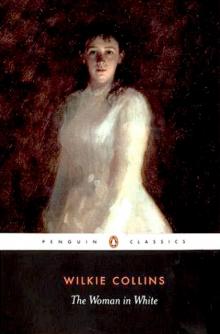 The Woman in White
The Woman in White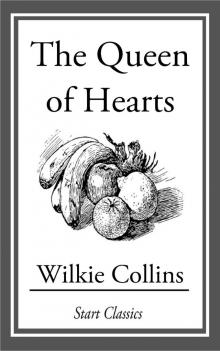 The Queen of Hearts
The Queen of Hearts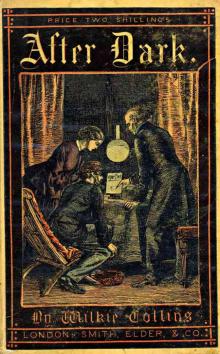 Miss Jeromette and the Clergyman
Miss Jeromette and the Clergyman Man and Wife
Man and Wife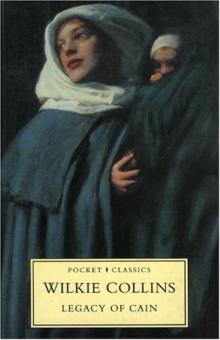 The Legacy of Cain
The Legacy of Cain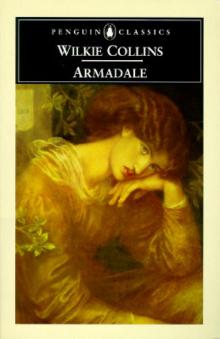 Armadale
Armadale The Frozen Deep
The Frozen Deep John Jago's Ghost or the Dead Alive
John Jago's Ghost or the Dead Alive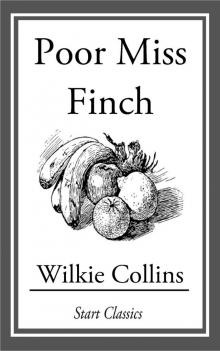 Poor Miss Finch
Poor Miss Finch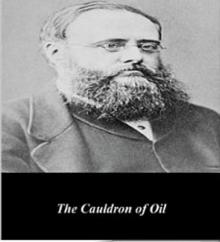 The Cauldron of Oil: A Case Worth Looking At
The Cauldron of Oil: A Case Worth Looking At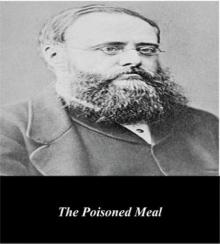 The Poisoned Meal
The Poisoned Meal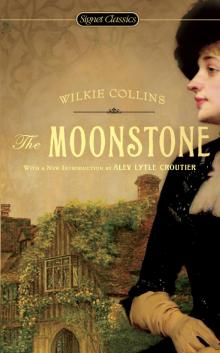 The Moonstone
The Moonstone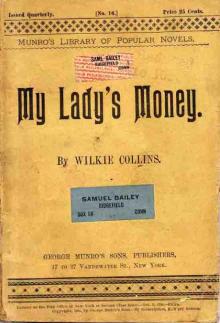 My Lady's Money
My Lady's Money Classic Ghost Stories
Classic Ghost Stories Jezebel's Daughter
Jezebel's Daughter The Devil's Spectacles
The Devil's Spectacles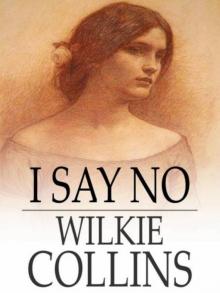 I Say No
I Say No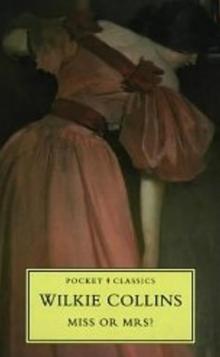 Miss or Mrs.?
Miss or Mrs.?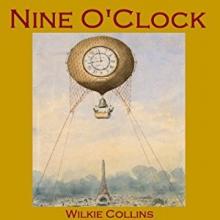 Nine O'Clock
Nine O'Clock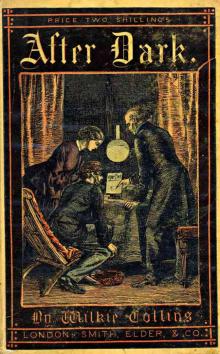 The Lawyer's Story of a Stolen Letter
The Lawyer's Story of a Stolen Letter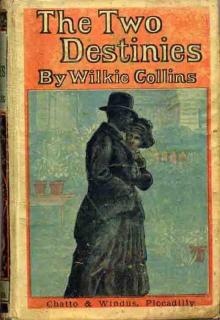 The Two Destinies
The Two Destinies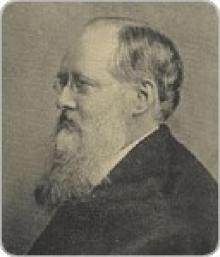 Mr. Percy and the Prophet
Mr. Percy and the Prophet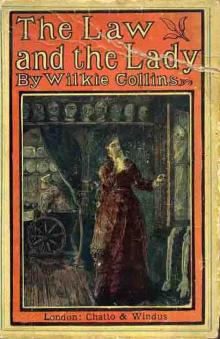 The Law and the Lady
The Law and the Lady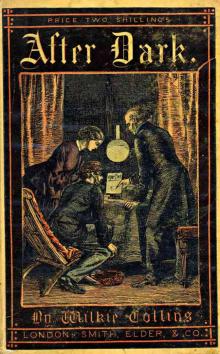 The Nun's Story of Gabriel's Marriage
The Nun's Story of Gabriel's Marriage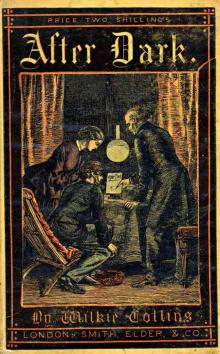 After Dark
After Dark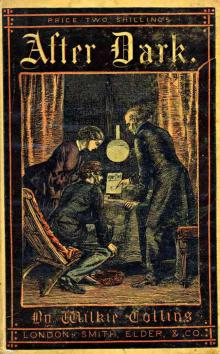 Mr. Captain and the Nymph
Mr. Captain and the Nymph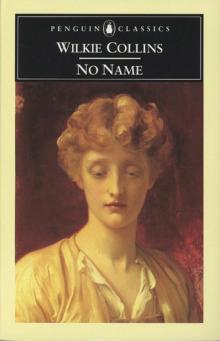 No Name
No Name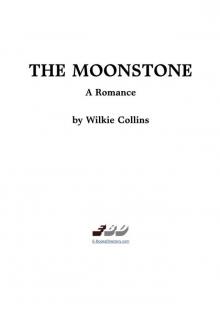 The Moonstone (Penguin Classics)
The Moonstone (Penguin Classics) Antonina
Antonina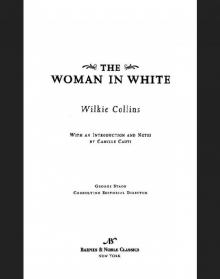 Woman in White (Barnes & Noble Classics Series)
Woman in White (Barnes & Noble Classics Series)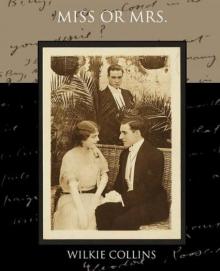 Miss or Mrs
Miss or Mrs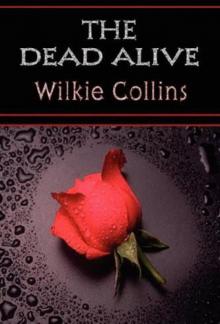 The Dead Alive
The Dead Alive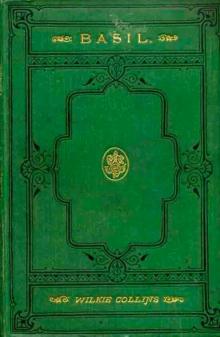 Basil
Basil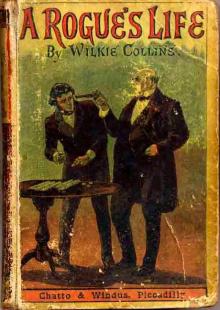 A Rogue's Life
A Rogue's Life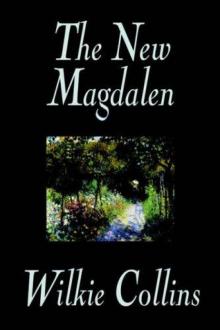 The New Magdalen
The New Magdalen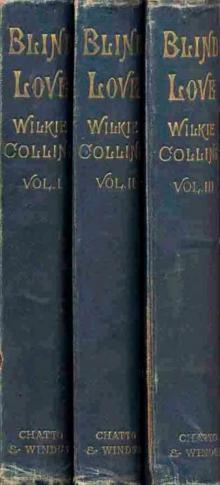 Blind Love
Blind Love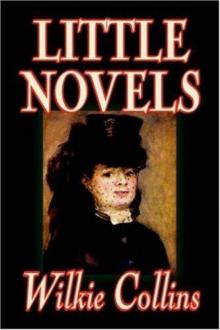 Little Novels
Little Novels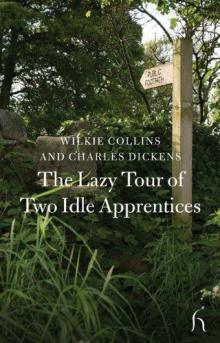 The Lazy Tour of Two Idle Apprentices
The Lazy Tour of Two Idle Apprentices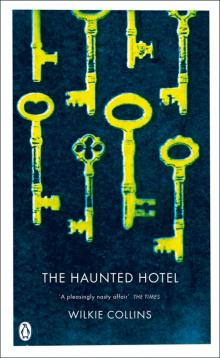 The Haunted Hotel
The Haunted Hotel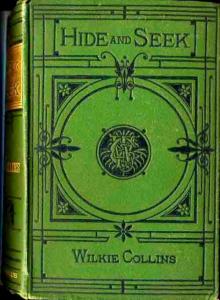 Hide and Seek
Hide and Seek